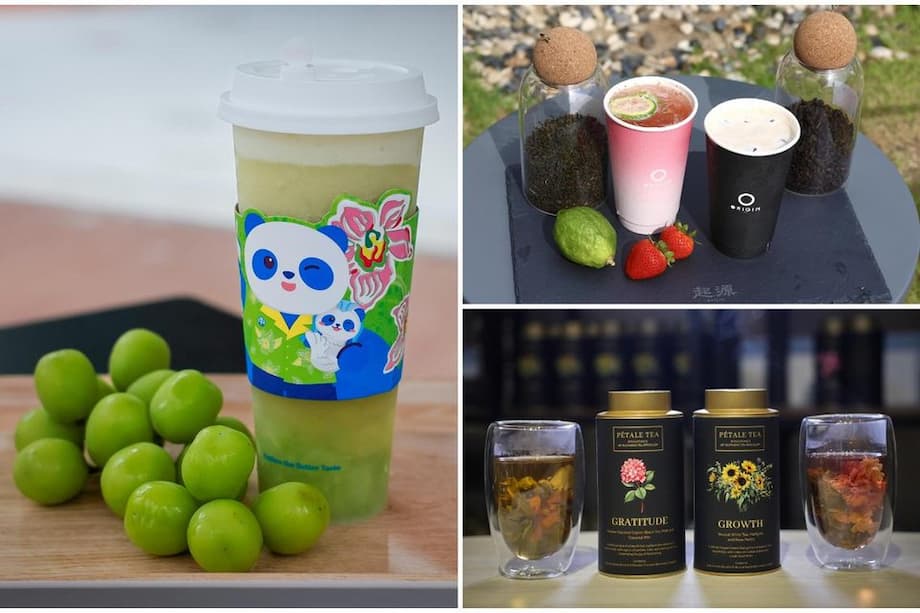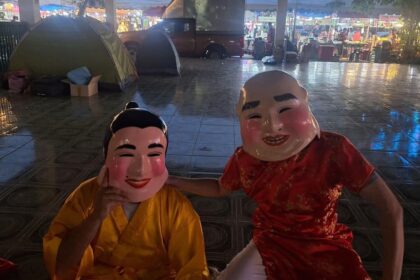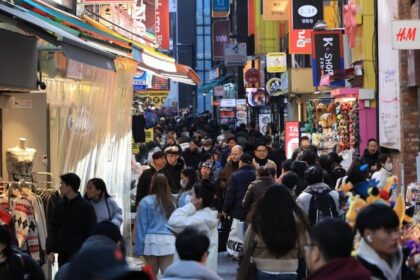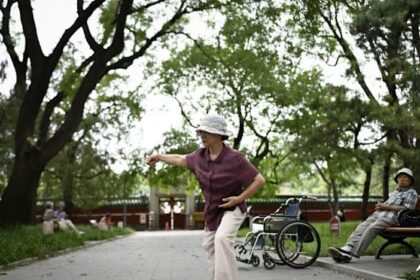Singapore’s Tea Renaissance: A New Wave of Flavors, Wellness, and Culture
Once overshadowed by the city’s coffee obsession, tea is now enjoying a vibrant renaissance in Singapore. From the arrival of global tea giants to the rise of home-grown specialty brands, the local tea scene is evolving rapidly—blending tradition, innovation, and a growing focus on health and lifestyle. This transformation is not just about what’s in the cup, but also about how Singaporeans are redefining their relationship with tea, making it a symbol of wellness, mindfulness, and cultural pride.
- Singapore’s Tea Renaissance: A New Wave of Flavors, Wellness, and Culture
- Why Is Tea Surging in Popularity?
- New Entrants and Home-Grown Innovators: Who’s Shaping Singapore’s Tea Scene?
- Global Brands, Local Flavors: The Internationalization of Tea in Singapore
- Specialty Teas and Customization: Meeting the Demands of Modern Consumers
- Bubble Tea: From Fad to Fixture—But at What Cost?
- Creative Marketing and the Experience Economy
- Luxury and Prestige: Singapore’s Place on the Global Tea Map
- In Summary
Why Is Tea Surging in Popularity?
Tea has long been part of Singapore’s multicultural fabric, with Chinese, Malay, and Indian communities each bringing their own rich tea traditions. Yet for decades, coffee and, more recently, bubble tea dominated the beverage market. Now, a new generation of consumers is turning to tea for its perceived health benefits, lower caffeine content, and the promise of a more mindful, social drinking experience.
According to market research by Mintel, Millennials and Gen Z are driving this shift, seeking unique flavors, customizable blends, and experiences that go beyond mere refreshment. The demand for personalization and self-expression is strong, with many young Singaporeans valuing memorable experiences over material possessions. This has fueled the rise of specialty tea salons, artisanal blends, and innovative tea-based products that cater to evolving tastes.
Health, Wellness, and Mindfulness
Tea’s reputation as a healthy, calming beverage is central to its resurgence. Many new brands are positioning tea as a path to inner peace and better daily habits, offering blends that promise everything from immune support to improved sleep. Herbal and floral infusions, caffeine-free options, and teas inspired by traditional Chinese medicine (TCM) are gaining traction among health-conscious consumers.
Instagrammable and Experiential
Modern tea brands are also tapping into the desire for visually appealing, shareable experiences. From blooming teas that unfurl in glass pots to colorful fruit infusions and playful packaging, tea is becoming as much about aesthetics as taste. Social media buzz and creative marketing—such as blind boxes and collectible plushies—are helping brands stand out in a crowded market.
New Entrants and Home-Grown Innovators: Who’s Shaping Singapore’s Tea Scene?
The past year has seen a flurry of activity, with both international and local brands making their mark. Here’s a closer look at some of the key players and what they’re bringing to the table:
- ChaPanda: With nearly 9,000 stores worldwide, this Chinese giant opened its first two Singapore outlets in July. ChaPanda has evolved from bubble tea to focus on fresh fruit teas, with its Mango Pomelo Sago a clear bestseller. Sixty percent of its customers opt for fruit-based teas, made with fresh fruit prepared daily and strict quality controls.
- Luli Singapore: Introduced by Jovalene Teo, Luli offers modern lifestyle beverages rooted in TCM, such as the Lingzhi Dragon Ginseng blend, which is said to support immunity and reduce fatigue. The brand is also experimenting with technology, planning to launch an AI Mirror for personalized tea recommendations.
- LimCha Teahouse Cafe: This home-grown concept preserves Teochew gongfu tea culture with a modern twist, offering premium Dancong teas, cold brews, and tea-infused pastries. The cafe aims to make traditional tea ceremonies accessible and appealing to a younger audience.
- Golden Seed: Located at Millenia Walk, Golden Seed offers tasting flights of high-quality teas, blending heritage with modern sensibilities. Customers can embark on tasting journeys and purchase artisanal teaware.
- Origin Teahouse: Focused on natural tea beverages with no artificial additives, Origin Teahouse offers creative drinks like Roasted Tie Guan Yin Latte and Berry Nice Tea, using fresh ingredients for a clean, authentic taste.
- Tea Therapy Singapore: Specializing in caffeine-free floral, herbal, and freeze-dried fruit teas, Tea Therapy promotes plant-based remedies and meditative tea rituals. Their floral tea bombs and herbal blends, such as Bonne Nuit for sleep support, are designed for wellness and relaxation.
- Petale Tea: Known for handcrafted blooming teas, Petale Tea turns tea-drinking into a mindful, sensory ritual. Their gift sets, like the Classic Storytelling Tin series, make tea a thoughtful present and a conversation piece.
Even established luxury brands like TWG Singapore are innovating, launching products such as Tea Teddies—tea-infused gummy bears that can be eaten as snacks or melted into hot drinks—demonstrating the playful side of Singapore’s tea culture.
Global Brands, Local Flavors: The Internationalization of Tea in Singapore
Singapore’s tea boom is part of a broader regional and global trend. Chinese tea chains such as Mixue, Heytea, Chagee, and Molly Tea are expanding aggressively into Southeast Asia, North America, and Europe. These brands are not only exporting products but also culture, introducing new-style teas that blend Eastern traditions with Western tastes and aesthetics.
According to China Daily, Chinese tea brands have opened over 5,000 outlets overseas, with Singapore serving as a key launchpad. Heytea, for example, began its international journey in Singapore in 2018 and has since expanded to London, Melbourne, and several North American cities. These brands succeed by balancing authenticity with thoughtful localization—adjusting flavors to suit local palates while retaining signature products that communicate their cultural roots.
Why Are Chinese Brands So Successful?
Several factors contribute to the success of Chinese tea brands abroad:
- Product Innovation: New-style teas feature fresh fruit, floral infusions, and visually striking presentations that appeal to younger, health-conscious consumers.
- Digital Operations: Brands leverage social media, influencer marketing, and online ordering to build buzz and streamline customer experiences.
- Affordability and Variety: Brands like Mixue offer a wide range of drinks at competitive prices, making premium tea accessible to a broad audience.
- Localization: Successful brands adapt their offerings to local tastes without losing their unique identity, ensuring relevance and authenticity.
As Wang Peng of the Beijing Academy of Social Sciences notes, “The overseas growth of Chinese tea brands shows that they are moving up the value chain, from low-cost producers to lifestyle and culture exporters.”
Specialty Teas and Customization: Meeting the Demands of Modern Consumers
Beyond mass-market brands, Singapore’s specialty tea scene is flourishing. Consumers are seeking high-quality, small-batch teas with unique flavor profiles and health benefits. Specialty tea shops and home-grown brands are responding with:
- Customizable Blends: Companies like Gryphon Tea’s Monogram label allow customers to layer flavors and create their own blends, supported by online tools for pairing and tasting notes.
- Locally Inspired Flavors: Brands such as Pin Tea and ETTE Tea Company offer teas named after Singaporean neighborhoods or inspired by local dishes, creating a sense of place and nostalgia.
- Plant-Based and Functional Teas: The rise of plant-based milks and botanicals is influencing tea recipes, with blends designed for specific health benefits like immunity, digestion, or relaxation.
Gigi Ng, Director of Dreiheit Group, explains,
Specialty teas are gaining popularity among consumers for their high-quality ingredients, unique flavors, and small-batch production. The market for tea is expanding, with younger generations and health-conscious consumers driving growth.
Technology and Sustainability
Modern technology is also shaping the industry, from AI-powered tea recommendations to improved processing and packaging. Sustainability is a growing priority, with brands focusing on ethical sourcing, traceability, and relationships with tea growers. The COVID-19 pandemic accelerated online sales and demand for functional teas, further transforming how Singaporeans discover and enjoy tea.
Bubble Tea: From Fad to Fixture—But at What Cost?
No discussion of Singapore’s tea scene would be complete without mentioning bubble tea. Since its arrival in 1992, bubble tea has become a cultural phenomenon, with over 60 brands and thousands of outlets across the island. The drink’s appeal lies in its extreme customization—consumers can choose their tea base, sugar and ice levels, and a dizzying array of toppings, from chewy pearls to cheese foam.
However, the bubble tea boom has raised concerns about health and sustainability. According to CNA, more than half of Singaporeans’ daily sugar intake comes from beverages, with bubble tea a major contributor. Even “zero sugar” options can be high in calories due to toppings. The drink is especially popular among youths, with brands marketing aggressively to younger demographics through mascots, collaborations, and social media campaigns.
As one CNA commentary notes,
The proliferation of bubble tea outlets is changing Singapore’s food culture, potentially crowding out other cuisines with more nutritional and cultural value. While bubble tea has its place as an indulgence, Singaporeans should consider moderating their consumption and making room for healthier food choices.
Innovation Within Bubble Tea
Despite these concerns, bubble tea brands continue to innovate. The brown sugar pearl milk trend, for example, has swept through Singapore, with brands like Tiger Sugar leading the way. This drink features fresh milk, brown sugar caramel, and tapioca pearls, creating a visually striking and indulgent treat. Other brands are experimenting with toppings like salted egg custard, avocado, or even tea-infused gummy bears, keeping the market fresh and competitive.
Creative Marketing and the Experience Economy
In an increasingly crowded market, tea brands are turning to creative marketing and experiential strategies to attract and retain customers. Limited-edition collectibles, blind boxes, and plush toys are now common promotional tools, tapping into nostalgia and the desire for unique memorabilia. These campaigns encourage repeat visits and social media sharing, helping brands build loyalty and buzz.
As reported by Malay Mail,
Food and beverage brands in Singapore are increasingly using blind boxes and plush toys as part of their marketing strategies to attract diners. This approach has proven effective in creating buzz and driving sales, as diners are eager to relive fond memories and share their finds on social media.
Experiential tea salons, ceremonial sets, and tasting journeys are also gaining popularity, offering consumers a chance to slow down, savor, and connect with tea culture in a deeper way.
Luxury and Prestige: Singapore’s Place on the Global Tea Map
Singapore is not just a hub for mass-market and specialty teas—it’s also home to globally recognized luxury brands. TWG, for example, was named one of the world’s top 10 luxury tea brands by World Brand Lab, alongside storied names like Twinings and Mariage Frères. This recognition reflects Singapore’s growing influence in the global tea industry and its ability to blend tradition with innovation.
Luxury tea brands are characterized by:
- Brand Strength: A reputation for quality, heritage, and exclusivity.
- Consumer Value-Added: Unique experiences, premium ingredients, and sophisticated packaging.
- Enterprise Development: Global reach, innovation, and adaptability to changing consumer preferences.
During the COVID-19 pandemic, consumer awareness of tea’s health benefits increased, further boosting demand for high-end and functional teas. As World Brand Lab notes,
The benefits of drinking tea have long been understood by the Chinese people and extend far beyond the effects of caffeine for which it is best known in the West. From digestive health to the enhancement of the circulatory system, the treatment of diabetes, and the improvement of memory, a daily tea-drinking regimen can both improve your life and increase your enjoyment of it.
In Summary
- Singapore’s tea scene is undergoing a renaissance, driven by health, wellness, and a desire for unique experiences.
- New entrants from China and innovative local brands are reshaping the market with fresh fruit teas, TCM-inspired blends, and artisanal offerings.
- Specialty teas, customization, and plant-based options are attracting Millennials and Gen Z, who value personalization and ethical sourcing.
- Bubble tea remains hugely popular but raises health concerns due to high sugar and calorie content.
- Creative marketing, experiential retail, and luxury branding are helping tea brands stand out in a competitive landscape.
- Singapore is emerging as a global tea hub, blending tradition, innovation, and cultural pride in every cup.












